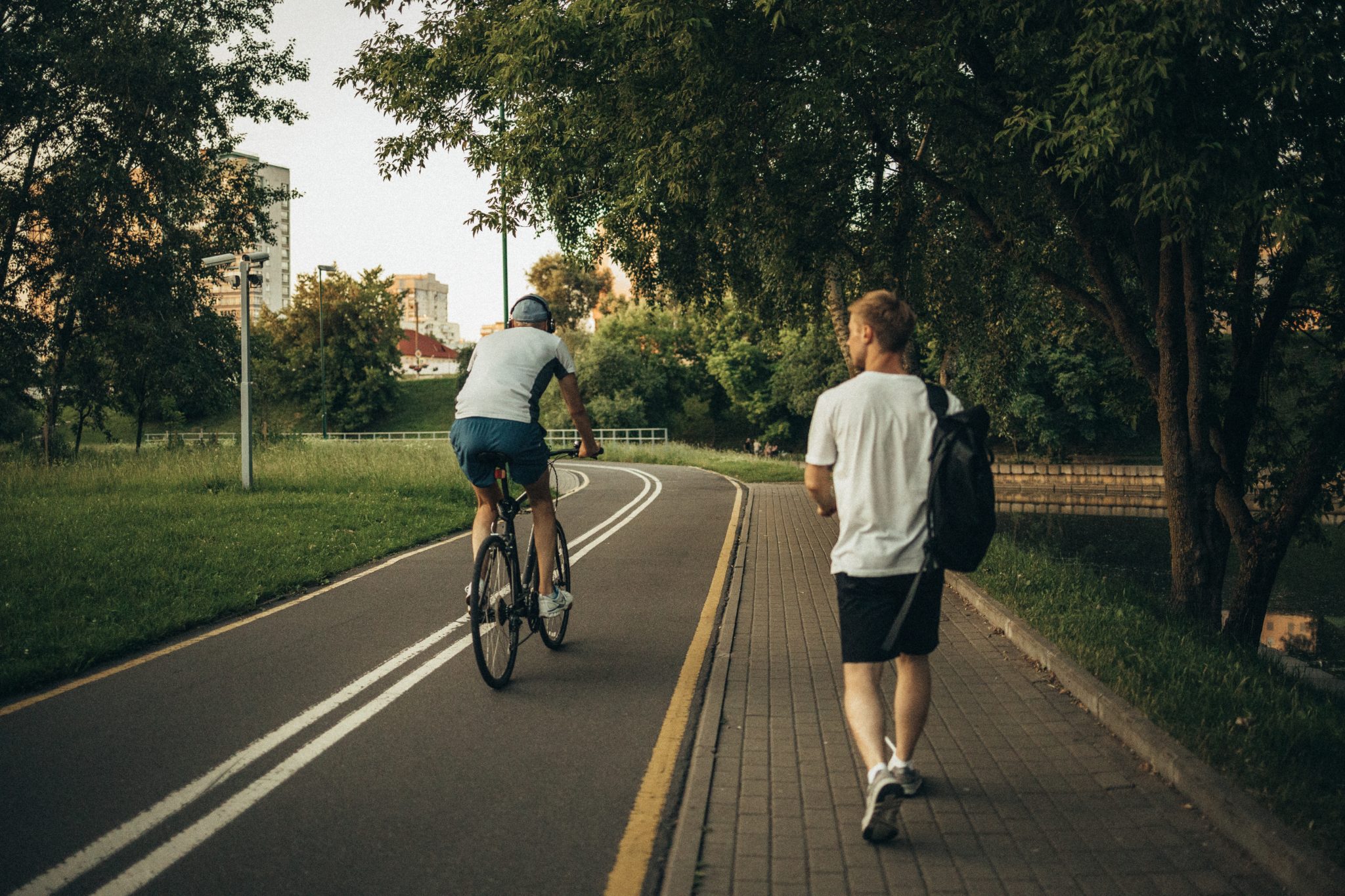Editor's note: A version of this article originally appeared on America Walks and is republished with permission.
The most recent release of the Intergovernmental Panel on Climate Change (IPCC) report again underscores the need for swift action on greenhouse gas emissions. It also highlights the importance of building walkable mixed use communities as a key strategy in fighting climate change.
At America Walks, we’ve always known that our advocacy for walkable communities is also climate advocacy. But it really means something coming from the best scientists in the world, like those who make up the IPCC. Nothing gets into that report without the most rigorous review.
Some of the Findings in the IPCC Report :
- “Cities can reduce their transport-related fuel consumption by ~25% through combinations of more compact land use and the provision of less car-dependent transport infrastructure. Appropriate infrastructure. including protected pedestrian/bike pathways, can support much greater localised active travel.”
Let us translate that for you: Walkable communities are great for fighting climate change.
- “Integrated spatial planning to achieve compact and resource-efficient urban growth through colocation of higher residential and job densities, mixed land use, and TOD could reduce urban energy use between 23-26% by 2050 compared to the business-as-usual scenario.”
In other words: put jobs, houses, and stores within walking distance of each other (what people already want) and reap big benefits.
- “a quarter of the 1.5°C scenarios describe transport-related CO2 emissions reductions in excess of 68% (relative to modeled 2020 levels). By building out local alliances and working within communities to devise local transportation plans, educating the public to sway behavior changes, and encouraging individuals to walk or bike by promoting more walkable areas, we can reduce our reliance on vehicle transportation. This further drives down our reliance on fossil fuels and therefore cuts our greenhouse gas emissions while simultaneously promoting equitable and sustainable communities
That’s a straight up endorsement of our mission statement – to advance safe, equitable, accessible, and enjoyable places to walk and move by giving people and communities the resources to effectively advocate for change.

The work is urgent. Every improvement we can make now in our land use patterns have long term positive effects. And every bad decision will cost us for decades.
We could go on (and the IPCC did – check out the tweet thread that inspired this blog post) but here’s why we’re excited about this IPCC report.
"At the local level, legislation can support local transport plans that include commitments... to encourage behaviour change... Such institution-led mechanisms could include bike-to-work campaigns, free transport passes, parking charges, or eliminating car benefits." pic.twitter.com/LwXuXpLnAq
— Union Tpke (@Union_Tpke) April 4, 2022
Fighting climate change means changing a lot of things, but some of the toughest changes to win are how we design and build our places. And elected officials can shy away from hard choices on building more housing in mixed use communities, or changing our streets to prioritize people outside of cars. In the last infrastructure bill, Congress decided that the path of least resistance included massive sums for continued highway expansion.
One IPCC report, even if backed by the world’s best scientists, isn’t going to change that political reality overnight. But the message is getting out that mixed use, accessible, equitable and walkable communities are a big part of the solution.
As advocates we can keep the momentum going by sharing this effective, popular solution to climate change: building great communities to live in. And that’s not just an opinion. That’s a scientific fact.






